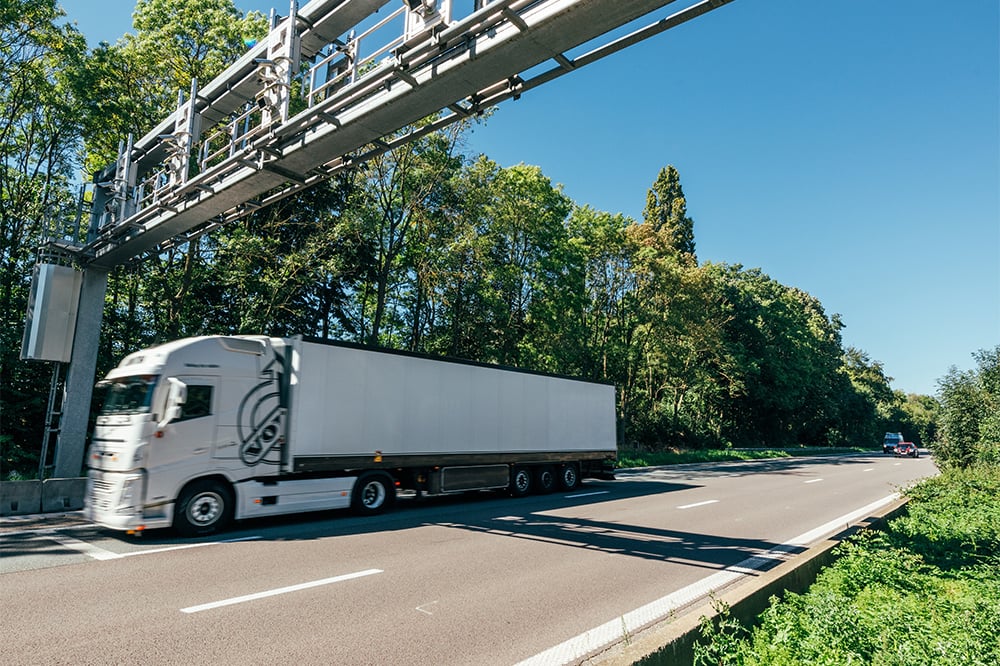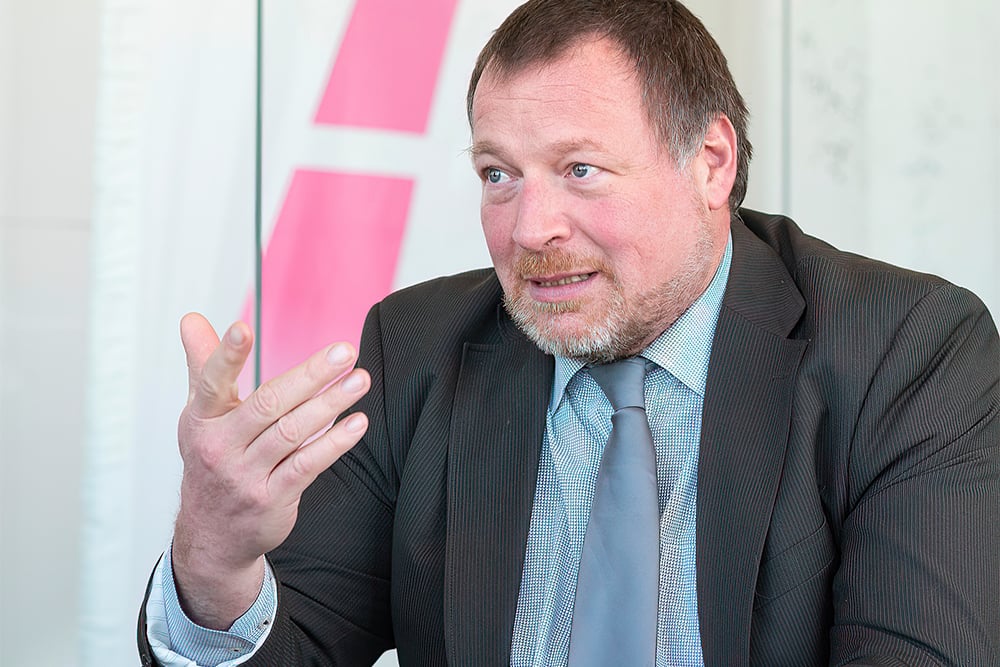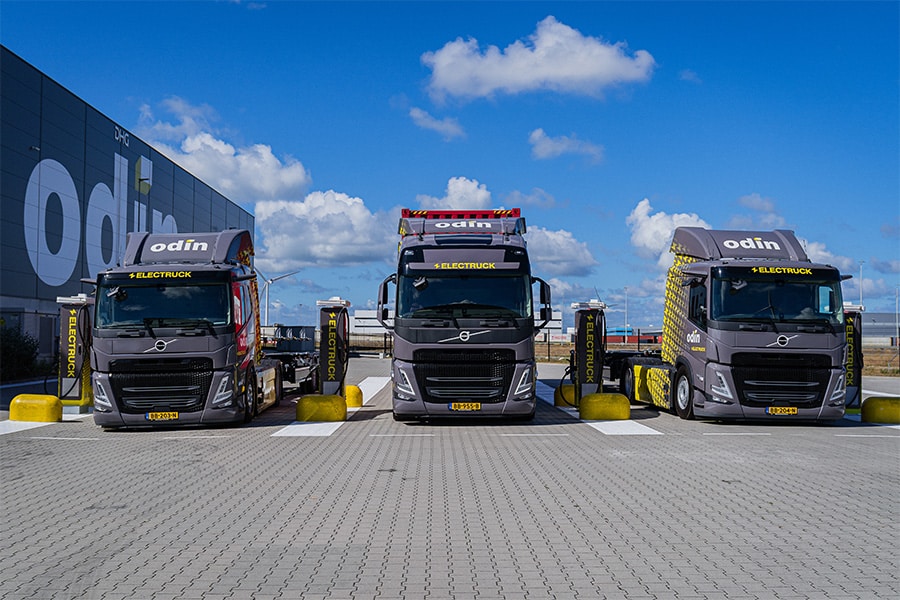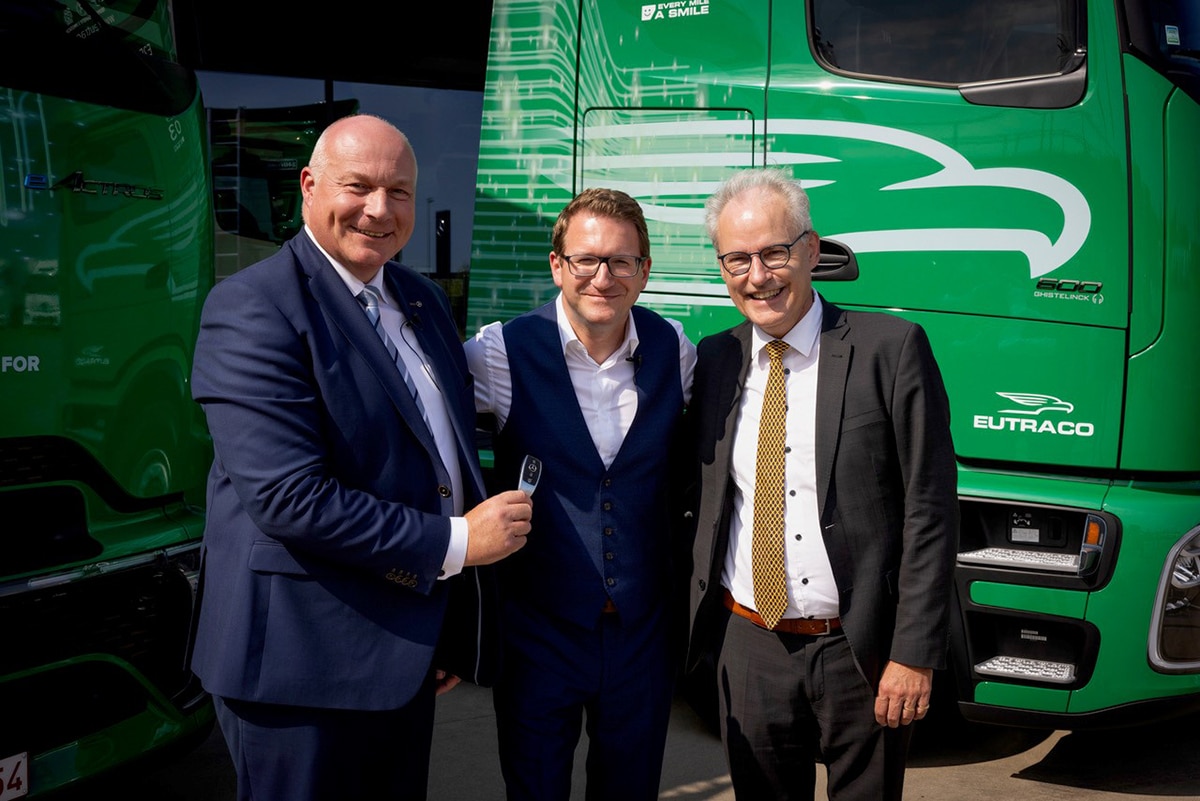
Viapass as guiding force of mileage charging system for trucks
On July 17, 2024, Viapass will blow out ten candles. The interregional government agency that realized the mileage charging system for trucks in our country has completed an intense course. Administrator General Johan Schoups is proud of his team. He looks back on the past decade.
"The introduction of the annual indexed kilometer charge for trucks has followed a long course," says Johan Schoups. "In January 2011, the three regions in our country concluded a political agreement on the reform of traffic taxation. This agreement formed the basis for road pricing. It culminated in a cooperation agreement in 2014 and a legislative framework in 2015."
"Since April 1, 2016, there have been three regional toll zones in Belgium for freight transport over 3.5 tons. The preparation and realization of this mileage charging system was quite a tour de force," Johan indicates. "As a so-called 'interregional entity,' we had to ensure the control of service providers, coordination between Flanders, Wallonia and the Brussels Capital Region, and clear communication about the mileage charge. The rollout and synchronization of a kilometer toll system in three different regions in the three national languages and English with two different systems - a tax in Flanders and Brussels and a fee in Wallonia (SOFICO) - made our project the largest and most complex toll system in the world."
Challenging course
Thanks to the dedicated efforts of all Viapass employees who worked day and night on the project, the mileage charging system shot out successfully in April 2016. And Johan is very proud of that. "One of the challenges was to create the broadest possible support among policymakers and users about the usefulness and workability of the mileage charge for trucks," he recalls. "Similar foreign projects often didn't make it to the finish line, such as the 'Different Payment for Mobility' project in the Netherlands, Ecotaxe in France and the inception of the German PKW vignette for passenger cars."
"Another challenge was to create a modern and high-tech system without barriers and toll gates on our Belgian roads. And in terms of financing, we aimed for a self-financing system, where our private partners had to pre-finance everything. We managed to set up a toll system that functioned flawlessly from the start, leaving aside some typical teething problems."

Source of revenue
The kilometer charge for trucks has so far operated without any interruption. As a result, the successful rollout of Viapass has already generated a great deal of revenue for the three regions in our country. "In 2023, the counter of tolls collected in our country stood at 888 million euros," Johan knows. "What is striking here is that more than 54 percent of this amount is paid by foreign truck drivers."
Treasure of information
The mileage charging system introduced since 2016 not only provides a lot of revenue, but also a wealth of data. Johan explains: "Via toll collection, we generate a huge amount of aggregated and pseudonomonomized data about vehicle flows on our roads every day. Which countries are most represented? Which regions in our country have to swallow the most freight traffic?
And what is the share of electric trucks on Belgian roads? We have seen truck traffic evolve dramatically over the past decade."
Johan gives two concrete examples: "During the first covidlockdown - from March to May 2020 - road freight transport in Belgium fell sharply. This caused a 28 percent drop in terms of economic activity. From June 2020, transport picked up again, to reach pre-corona levels again in September of that year. Another example: during the recent farmers' protests in the port of Zeebrugge, we saw in real time how truck drivers bypassed or blocked this region, with the known consequences for the delivery of goods."
Index adjustment mileage charge
From July 1, 2024, new (indexed) rates for road pricing will apply in Flanders and Brussels. "These new rates will be consultable on the Viapass website," Johan indicates. "What is also new is that the Brussels Capital Region will grant the preferential rate of zero euro cents per kilometer to zero-emission vehicles. This is already the case on the entire Flemish road network. In Wallonia, these vehicles remain in the EURO VI emissions category."




